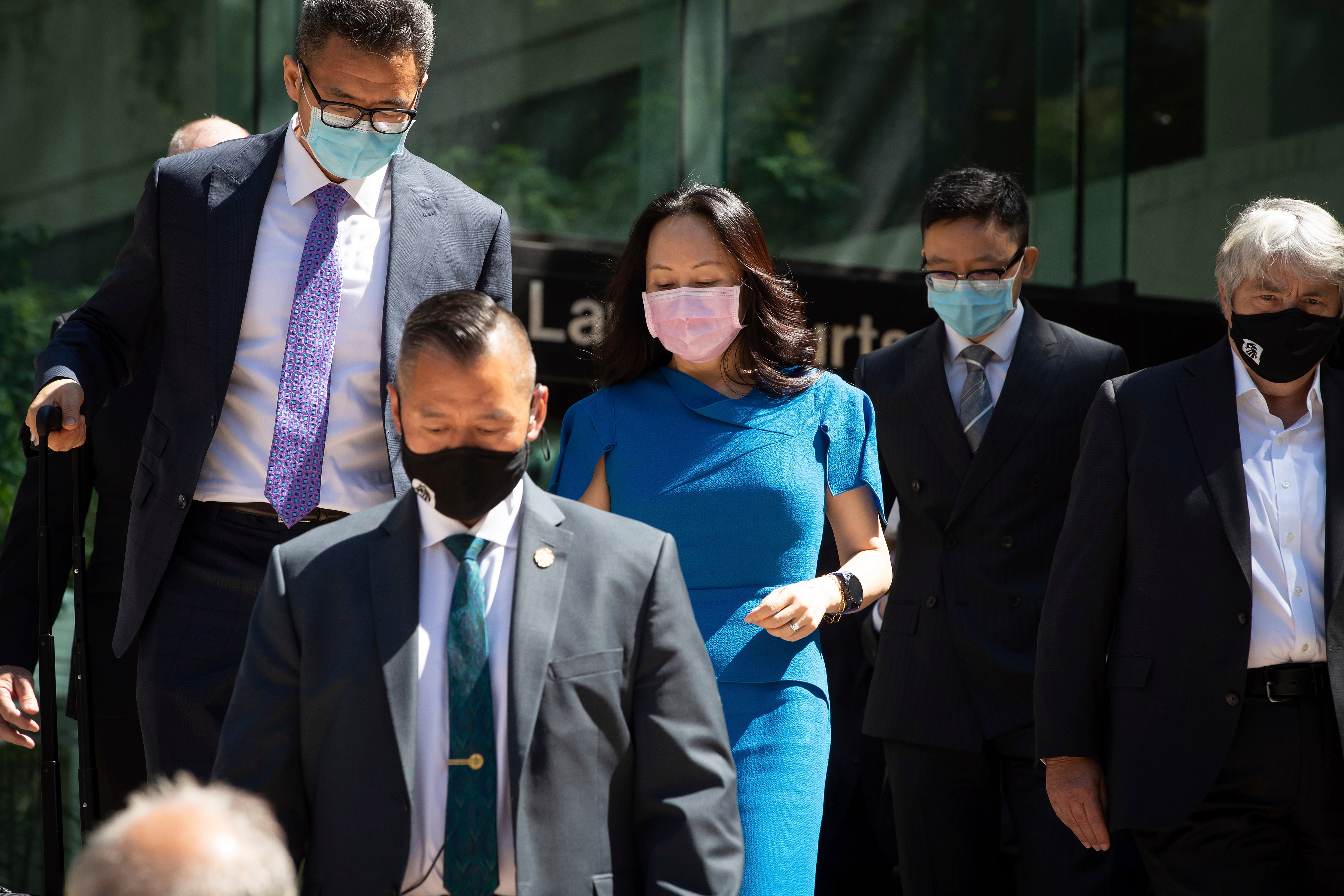Lawyer for Huawei CFO argue US was 'selective' in disclosure
Lawyers for a senior executive for Chinese communications giant Huawei Technologies have argued in court that the United States “strategically crafted” a misleading record of the case and acted “in bad faith” when presenting reasons for her extradition

Your support helps us to tell the story
From reproductive rights to climate change to Big Tech, The Independent is on the ground when the story is developing. Whether it's investigating the financials of Elon Musk's pro-Trump PAC or producing our latest documentary, 'The A Word', which shines a light on the American women fighting for reproductive rights, we know how important it is to parse out the facts from the messaging.
At such a critical moment in US history, we need reporters on the ground. Your donation allows us to keep sending journalists to speak to both sides of the story.
The Independent is trusted by Americans across the entire political spectrum. And unlike many other quality news outlets, we choose not to lock Americans out of our reporting and analysis with paywalls. We believe quality journalism should be available to everyone, paid for by those who can afford it.
Your support makes all the difference.Lawyers for a senior executive for Chinese communications giant Huawei Technologies argued in court Wednesday that the United States “strategically crafted” a misleading record of the case and acted “in bad faith” when presenting reasons for her extradition.
Meng Wanzhou who is Huawei's chief financial officer and the daughter of the company’s founder, was arrested at Vancouver’s airport in late 2018 at the request of the U.S., which has charged her with fraud. Her arrest infuriated Beijing, which sees her case as a political move designed to prevent China’s rise.
The U.S. accuses Huawei of using a Hong Kong shell company called Skycom to sell equipment to Iran in violation of U.S. sanctions. It says Meng committed fraud by misleading the HSBC bank about the company’s business dealings in Iran.
Defense lawyer Mona Duckett said the U.S. omitted facts, obscured the law and “inaccurately summarized documents to support a false narrative.”
The only remedy for the court is to deny the extradition request, Duckett said.
Meng, who attended the hearing wearing a blue dress and an electronic monitoring device on her ankle, followed the proceedings through a translator.
Over the next three weeks Association Chief Justice Heather Holmes will hear final arguments on whether Meng should be extradited to face trial in the United States.
Holmes likely won’t make her ruling until later in the year. Whatever her decision, it will likely be appealed.
In past hearings Meng’s lawyers have argued her extraction should be halted because Canadian Border Security Agency officers detained and questioned her without a lawyer, asked questions that benefited U.S. authorities, seized her electronic devices and put them in special bags to prevent wiping, and compelled her to give up the passcodes before her official arrest.
They have also argued that comments by then U.S. President Donald Trump showed he hoped to use Meng’s arrest as part of a bargaining chip in trade negotiations with China.
Soon after Meng’s arrest, China arrested Canadians Michael Spavor and Michael Kovrig in apparent retaliation and charged them with spying. Both have remained in custody with limited access to visits by Canadian consular officials.
Meng remains free on bail in Vancouver and is living in a mansion.